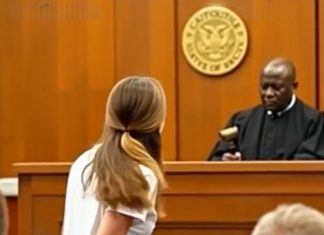The Tragic Loss of Charlie Kirk: A Turning Point in American Discourse
The shocking and untimely death of Charlie Kirk, the 31-year-old founder of Turning Point USA, reverberated across the nation, prompting an outpouring of grief and reflection. On September 10, during what was intended to be an engaging speaking event at Utah Valley University, Kirk’s life was cut short by a devastating gunshot. This tragedy did not merely mark the end of a promising young activist’s journey; it ignited a fierce conversation about the implications of political violence, the sanctity of free speech, and the pressing need for dialogue in an increasingly fragmented society.
Within hours of the heartbreaking news breaking, tributes began flooding in from all corners of the political spectrum. Kirk had emerged as a pivotal figure in conservative youth movements, passionately championing the ideals of his generation. The response to his assassination was not only from fellow conservatives but also from political adversaries who recognized the tragic loss of a young life dedicated to activism. Former President Donald Trump, a mentor and supporter, expressed his sorrow on Truth Social, noting, “Charlie was iconic. No one had the dedication, courage, and passion to reach young Americans like he did.” This sentiment echoed throughout the political landscape, illustrating how Kirk’s influence extended beyond party lines.
A Day Like Any Other
September 10 began like many of Kirk’s previous speaking engagements, filled with anticipation and energy. Students gathered under the bright white canopy at Utah Valley University, eager for the dynamic discussions that Kirk was known for. Hundreds filled the courtyard, not only supporters but also protesters, ready to counter his views. However, at around 12:20 p.m., the atmosphere shifted dramatically when a single shot rang out. Witnesses initially mistook the sound for a firework, but panic quickly ensued as Kirk fell, clutching his neck. The scene spiraled into chaos, with students diving for safety amidst screams of terror.
Emergency responders rushed to the scene as Kirk was transported to a nearby hospital. Tragically, he succumbed to his injuries later that afternoon, prompting a wave of disbelief and sorrow across the nation. Authorities took swift action to secure the campus, conducting extensive searches and initiating a wide-ranging investigation. Evidence indicated that the shot had been fired from a distance, raising questions about the means and motivations behind this targeted act of violence. As the investigation unfolded, the FBI and local law enforcement worked diligently to identify the shooter, highlighting the complexities of addressing political violence in America. This event, while shocking in itself, became a lens through which many began to evaluate the broader context of political tensions in the United States.
A Nation United in Grief
The aftermath of Kirk’s assassination revealed a shared sense of grief among many, transcending political divides. Prominent figures from different parties, including former Presidents Barack Obama and Joe Biden, condemned this act of violence, underscoring the necessity for a more civil discourse. Obama stated, “This kind of hateful violence has no place in our democracy,” while Biden echoed, “Although we often disagreed with him, violence is never the answer.” Such remarks reflect a growing concern about the implications of political hostilities that threaten the fabric of American society, raising questions about how rhetoric can lead to real-world consequences.Notably, Kirk’s death has prompted discussions about the broader implications of political violence and its rise in recent years. From the 2017 congressional baseball shooting to the attack on Paul Pelosi in 2022, Kirk’s assassination is part of a distressing trend that raises questions about safety for public figures and activists. The location of the shooting—a college campus, a space intended for open dialogue and learning—adds another layer of tragedy, reminding us that even forums meant for debate can become sites of violence. This event has sparked a renewed discussion on the need for security measures and the responsibility of institutions to protect the voices that drive democracy.
Understanding Charlie Kirk: A Legacy of Influence
Born in 1994 in Illinois, Charlie Kirk rose to prominence at a remarkably young age. He co-founded Turning Point USA in 2012, aiming to empower conservative students across the nation. His organization grew rapidly, becoming a formidable presence on campuses and amassing millions of supporters online. Kirk was a divisive figure; his supporters admired his courage and relentless advocacy for conservative values, while critics often labeled him as polarizing and confrontational. Yet beyond the politics, Kirk was a dedicated family man, deeply committed to his wife, Erika Frantzve, and their two young children, a son and daughter born during his marriage. His commitment to family was often highlighted in his speeches, where he emphasized the importance of traditional values and the role of families in shaping society.As the nation mourns, many are grappling with the complex legacy Kirk leaves behind. His passing has sparked calls for greater awareness and discussions around political violence and the importance of fostering respectful discourse. In a somber address, Donald Trump referred to Kirk as a “martyr for the conservative cause,” framing his death as a pivotal moment in American history. This sentiment is likely to resonate in the upcoming 2026 midterm elections, as conservative leaders seek to rally support around Kirk’s ideals and vision for the future. The implications of his death will extend beyond memorials; it will undoubtedly shape campaign strategies and messaging as parties grapple with how to respond to the climate of fear that has emerged around political engagement.

















